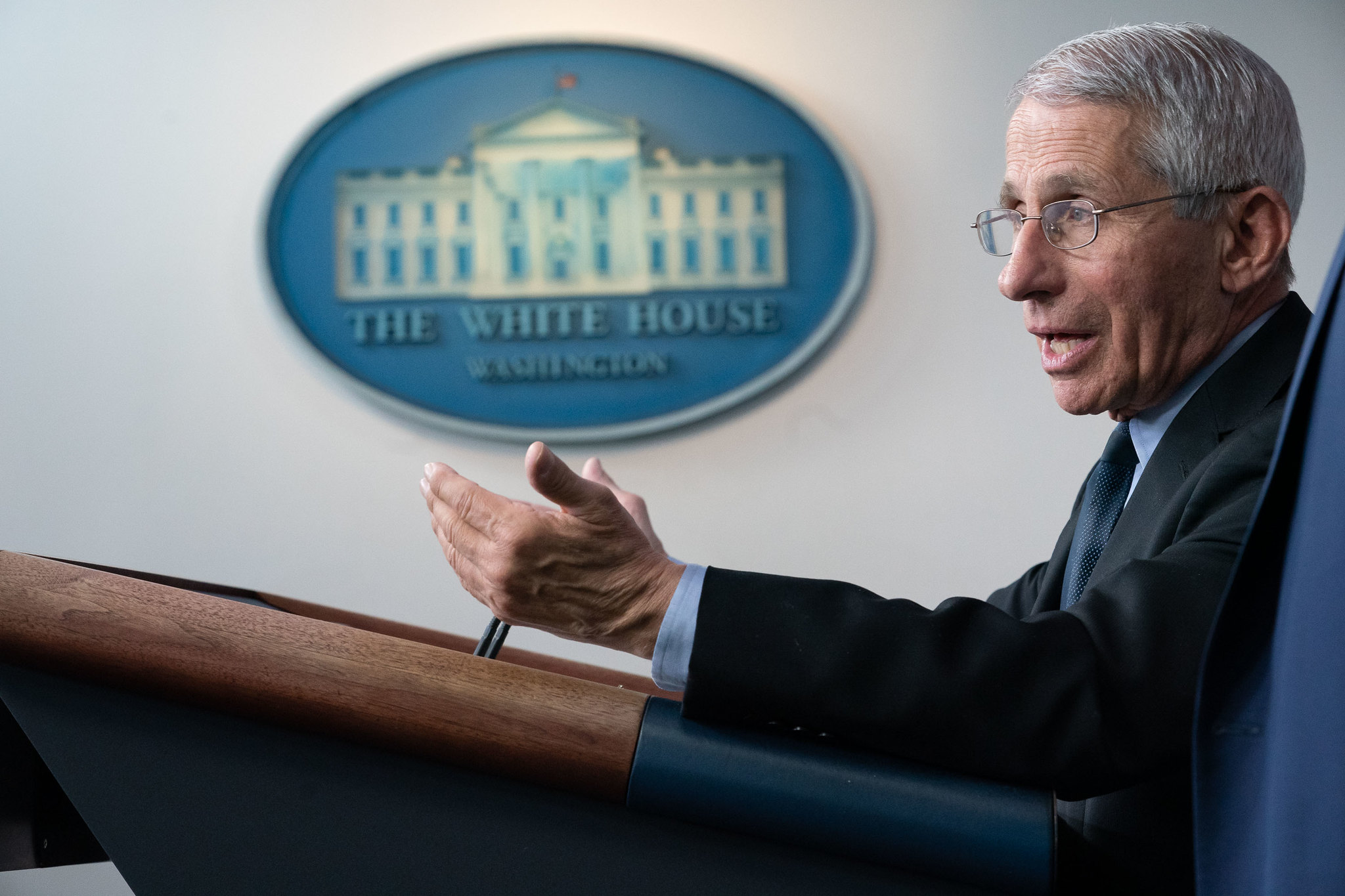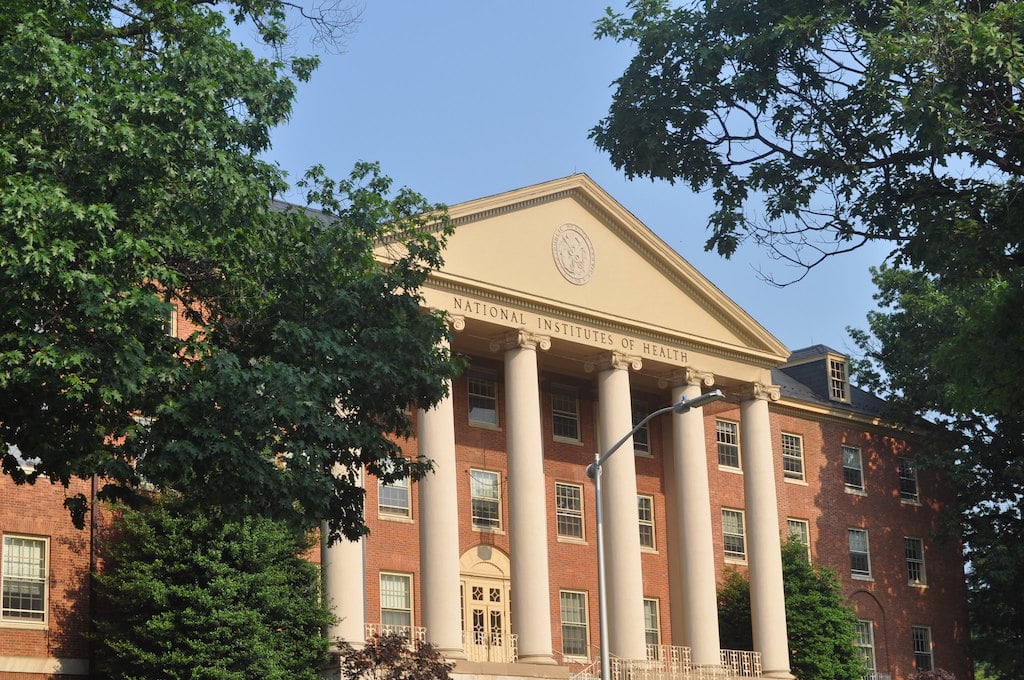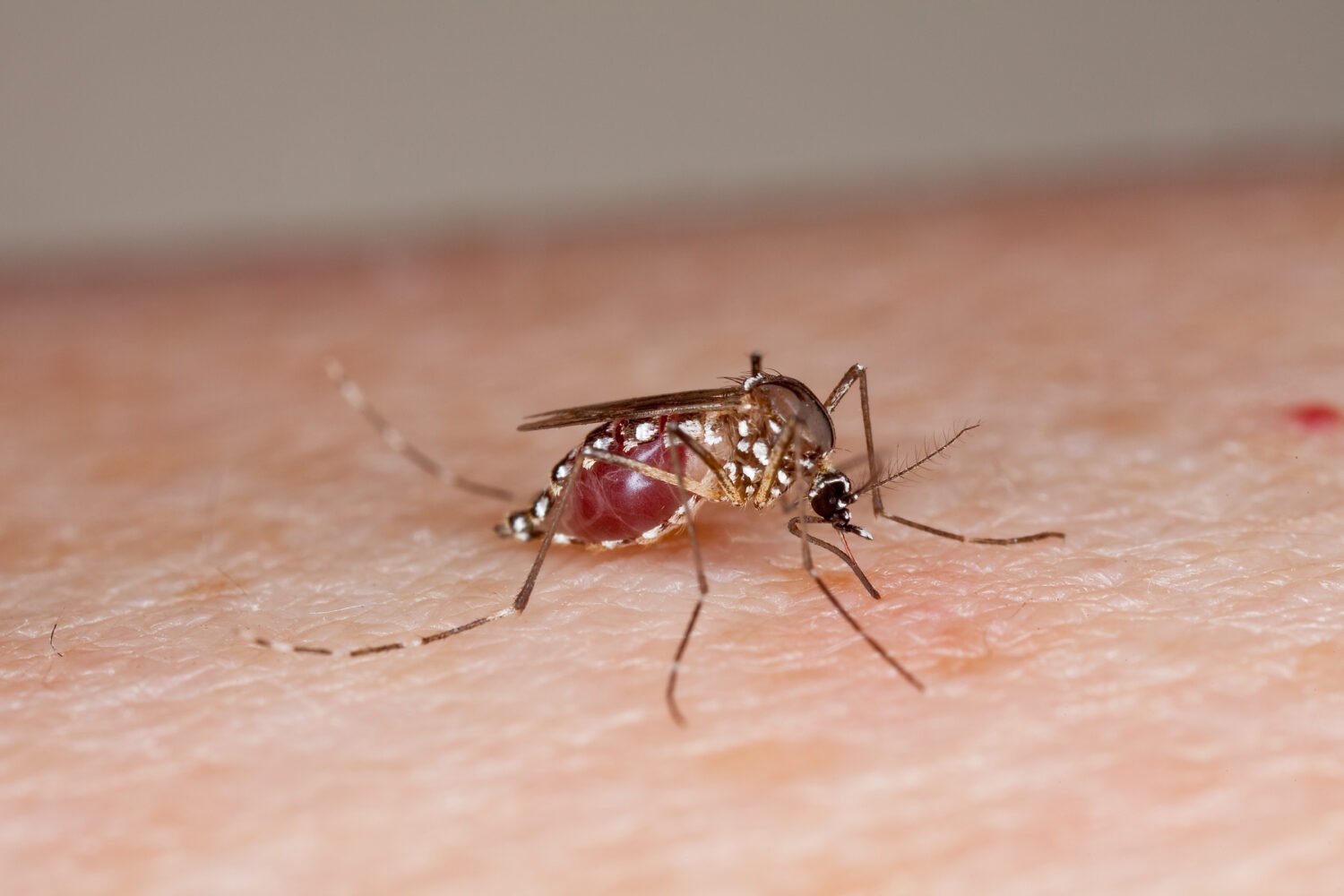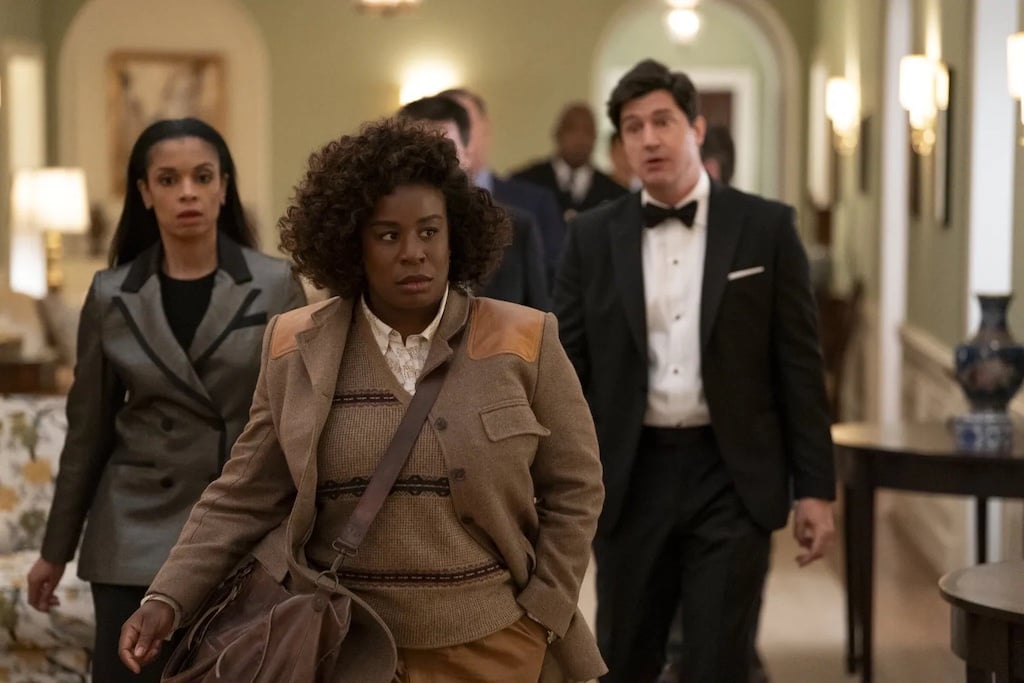In 1991, Sally Quinn—doyenne of the Washington intelligentsia, who was then on a streak of popular novels—published “Happy Endings,” which climbed the bestseller list. Across 500-plus pages, Quinn unspools the juicy romance of a widowed First Lady who falls head over heels for a dashing and cutting NIH scientist (who, by the way, has recently discovered a therapy for AIDS) while a white-hot and secretive love affair takes wind. Bellinis are spilled, love is made, hearts are broken and mended—all for the singular and mysterious scientist, who goes by the name of Michael Lanzer.
Or better known by his real name: Anthony Fauci.
Part searing romance, part roman à clef, “Happy Endings” made the bestseller list during a year when HIV-related deaths were then the highest ever recorded in the United States. By then, Fauci was the government scientist best known for combatting the virus’s spread as director of the National Institute of Allergy and Infectious Diseases.
It was around this time that Quinn first encountered the real-life Fauci, at a Washington function where the two were paired as dinner partners. With his tie askew and from behind enormous glasses, Fauci left an impression of earnest brilliance, enough to inspire the main character of Quinn’s upcoming novel.
“I just fell in love with him,” Quinn told me recently, recalling their evening together. “Usually those dinners, you make polite conversation, and that’s it. But we had this intense conversation, personal conversation. I though, ‘Wow, this guy is amazing.'”
Somebody who was really brilliant, and compassionate, and kind, and decent, and honest. All of those things—and sexy.
Quinn was then working on a sequel to her previous novel, “Regrets Only,” and seeking inspiration for the romantic opposite for one of her main characters, the former First Lady. “What kind of person would she be in love with? It would not be somebody from a great family or with a lot of money. But it would be somebody who was really brilliant, and compassionate, and kind, and decent, and honest. All of those things—and sexy.”
“He just exuded charisma,” she added. “All the things that she would have fallen in love with.”
Spoiler alerts ahead: ‘She,’ in this instance, is Sadie Grey, the fictitious First Lady whose amorous travails over two novels and three presidential administrations would leave Flaubert slack-jawed. Quinn packs the pages with enough political and domestic intrigue—The President’s son is illegitimate! The President is dead! The President has AIDS! The President has resigned!—that by the time a sandy-haired and wiry (sorry—”sexy”) NIH scientist named Michael Lanzer makes his entree on a Bahamian beachfront to strike up an affair with a widowed Fist Lady, it comes as a partial reprieve.
But not for long: Sadie and Michael (who is married and Orthodox Jewish, though Fauci is not) start a long-simmering romance that, while playing out over months at mostly glacial pace, doesn’t lack for imagination. Before long, Grey is mewing over Lanzer’s “low, melodious, sexy, almost hypnotic” voice. Suffice it to say that readers who are wise to Lanzer’s true identity will more than once find themselves confronted with a very naked Anthony Fauci.
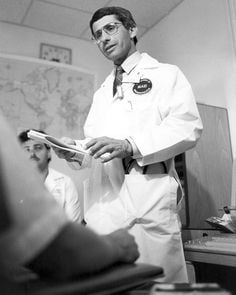
Meanwhile, Quinn’s eye for character vests Lanzer with qualities others have observed in the real Fauci twenty years later, now as the face of the government’s Covid-19 response. In Quinn’s pages, Grey has partnered with the new and untested First Lady on a federal AIDS commission—but finds the more arduous task to be dragging a shy and recalcitrant Lanzer to a White House soirée. (“I’ve really become a politician now and a PR man,” Lanzer complains, who misses the simpler days in his laboratory.)
In Quinn’s Washington, the big scandals are drug use in the Department of Justice and an HIV-positive president—both of which would hardly register as asterisks by 2020 standards (or perhaps even pass for semi-plausible theories of current affairs). But occasionally, there are glimpses of the future. In spite of himself, Lanzer charms the Beltway elite with his decency and candor. He is equally green to the crudeness of administration officials who are in over their head. “He seemed stunned that a cabinet officer could act this way at the White House,” Grey observes of a gobsmacked Lanzer, who looks on while a senior official spews reckless claims about HIV. Meanwhile, an incapacitated president leaves the nation feeling “rudderless;” Lanzer is nothing but supportive, offering his counsel and confidence to the White House at every stage.
“He was so different from most Washington people, because he’s so self-effacing. He’s not in it for the glory or the name recognition,” Quinn recalled. She decided to have Grey “fall in love with this doctor who does this amazing work, and doesn’t get a lot of publicity.”
This she does, as Quinn navigates readers through the savoire faire of the Georgetown set, taking extra care to fillet the uninitiated—or the “NQOC”—with the same verve that delivered her into fame as a young essayist. “Foxy…was not housebroken. And certainly not White Housebroken,” Grey observes pityingly of a rakish Attorney General.
And then the Sadie-Michael romance is only half the book, which weaves between another steamy plotline in a major Washington newsroom. The result is several hundred pages of what appears to be a love octagon, punctuated by meditations on the art of party seating, and leavened with true-enough insights about Catholic fear and Jewish guilt (“Guilt is sexier,” Quinn concludes). There are also satisfying doses of self-consciousness, including a blue-blooded Grey’s botched Passover seder, and Lanzer’s fumbling attempts at scientist-minded intimacy: “You are like a tumor in my brain which is getting larger and larger each day,” he coos.
That might not sound like the sweet nothings of a seasoned Casanova, but Fauci’s demeanor was more than enough to charm Quinn—who adds that in real-life, the NIAID scientist has long known he is the secret inspiration for the character. “He just thought it was funny,” Quinn laughed. “I think he was a little embarrassed.”
It could be said that Quinn, adept at capturing a moment, captured Fauci well ahead of the craze that has seen his face plastered on dolls, accessories, alcoholic beverages, and socks. While his voice might not be “melodious” (see Brad Pitt), Sadie Grey seems to have discovered what the country, watching Fauci every night for weeks on television, has learned, too:
“The brain was the true erogenous zone.”

